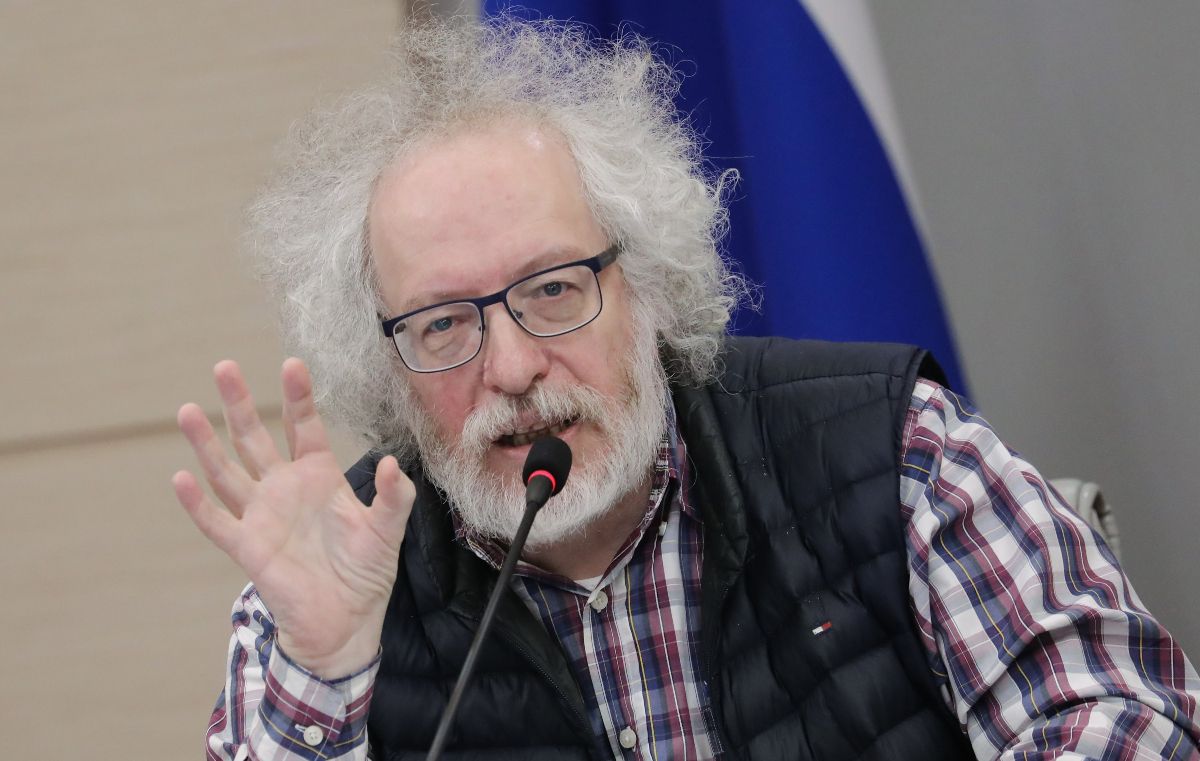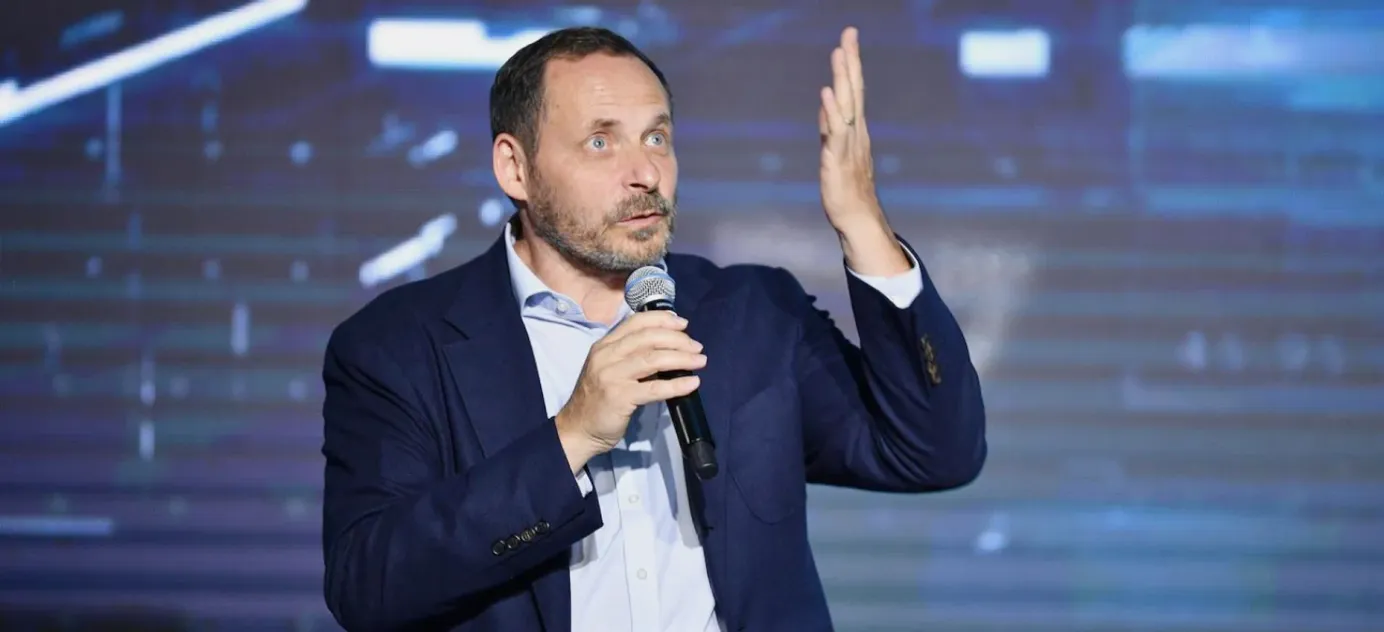
Russian opposition splits over support for lifting sanctions on oligarchs
Lobbying by prominent billionaires Mikhail Fridman and Pyotr Aven in an attempt to have European sanctions on them lifted caused a bitter row last week. The tycoons, who are co-owners of one of Russia’s biggest investment outfits, Alfa Group, tried to recruit the leaders of Russia’s opposition in their quest. When it emerged that Leonid Volkov, one of jailed opposition leader Alexei Navalny’s closest colleagues, was involved in lobbying on behalf of the duo, he had to step down from his role with the Anti-Corruption Fund (FBK). It was also announced that Fridman and Aven are selling one of their main Russian assets.
City Hall’s “slush fund”
The scandal followed an FBK investigation into how Moscow City Hall allegedly used a magazine as a “slush fund.” In particular, Navalny’s colleagues accused the family of Alexei Venediktov, ex-editor-in-chief of liberal radio station Ekho Moskvy of taking City Hall’s cash.
The investigation found that, since 2019, a company owned by Venediktov’s wife took $8.9 million from City Hall and spent it on the publication of the “My District” magazines, which are distributed freely around Moscow. Navalny’s team alleged that the costs were inflated and part of the money ($300,000) was pocketed by Venediktov himself. In return, according to the investigation, Venediktov helped the authorities out by being an official cheerleader for the electronic voting system introduced for city elections.
Navalny’s supporters believe that the use of electronic polling in Moscow — like across Russia — was a means of rigging the vote for pro-Kremlin candidates.
Volkov described Venediktov as a dangerous enemy because “he works far more subtly” and is more likely to deceive “regular people” than state propagandists. Venediktov responded that he published the magazines at a commercial rate and did not earn a kopeck for himself.
A letter in support of the oligarchs
In answer to these allegations, Venediktov published a letter signed by several representatives of the Russian opposition (including Volkov) and independent jounrlaists . The letter was addressed to senior figures at the EU — president of the European Commission Ursula von der Leyen and foreign policy chief Josep Borrel — and argued in favor of lifting sanctions on Fridman, Aven and fellow Alfa Group shareholders German Khan and Alexei Kuzmichev. The text emphasized that Fridman, Alfa’s major shareholder, is “known for his liberal views” and was a friend of murdered opposition leader Boris Nemtsov. It added that Alfa Group was never close to the authorities or to Putin, that the company invested in Ukraine, steered clear of politics and tried to help Ukrainian refugees.
Signatories including politician Leonid Gozman, businessman Yevgeny Chichvarkin, co-founder of opposition TV channel Dozhd Vera Krichevskaya, publicist Vladislav Inozemtsev and journalist Sergei Parkhomenko confirmed the document was genuine.
Volkov claimed Wednesday that he had not signed the letter in its published form and claimed his signature had been “photoshopped.” However, the next day Venediktov published another letter to Borrel, dated Oct. 14, 2022, that was signed by Volkov and written under a letterhead from the ACF (the international arm of the FBK).
This letter was similar to the first one, although it contained an added appeal for Aven (who is on the FBK’s own “list of 6,000” targets for sanctions). Volkov argued that the EU was able to freeze the assets of these “oligarchs” precisely because they were honestly earned and not hidden (unlike the wealth of state officials), thus demonstrating that sanctions against them were unjust and unreasonable. Volkov singled out Aven, despite his presence at a meeting with Putin two days after the invasion, for “publicly declaring his pointed opposition to Russian aggression in Ukraine,” leaving Russia with his family at the end of February and repeatedly stating an “unambiguously negative attitude” to Putin’s policies.
After the letter was published, Volkov announced he was “taking a break from his public activities as chairman of the board of ACF International.” He said the October letter was a “big political mistake” and admitted he sent it on behalf of the FBK without the knowledge of his colleagues. He said his colleagues will now “decide how they view the possibility of working together” with him in the future. And he claimed that he wrote to Borrel in the hope of sparking a “chain reaction of public criticism of the war and a split among Russia’s elite.”
Аlfa shareholders dispose of Russian assets
After the letters were published it emerged that Fridman and Aven were selling their stakes in Alfa Bank, Russia’s largest private bank. This is not their first sale of Russian assets since the start of the war in Ukraine: in the fall, their Dutch holding VEON announced the sale of mobile operator Vimpelcom (Beeline) to management. Alfa’s shareholders clearly want to try and demonstrate that they are leaving Russia. They hope this will help them escape from Western sanctions, a colleague of the billionaires told The Bell.
Fridman and Aven began to distance themselves from Russia in 2013 after Alfa Group completed the most lucrative sale in its history, selling 25% of oil company TNK-BP to state-owned Rosneft for $13.9 billion. During the 10-year history of TNK-BP, Alfa’s shareholders and their partners, billionaires Viktor Vekselberg and Leonard Blavatnik, had earned $54 billion from the oil company, Forbes calculated at the time of the sale.
Alfa’s shareholders invested $15.4 billion in a new company, LetterOne, which was registered in Luxembourg and was supposed to make foreign investments. At the end of 2021, LetterOne’s assets were worth $26.8 billion. After Fridman, Aven, Kuzmichev and Khan were sanctioned, however, their stake in LetterOne, like all their other European assets, was frozen. Prior to that, the businessmen managed to transfer part of their shares to a fifth Alfa Group co-owner, Andrei Kosogov, the only one of the team to escape sanctions. He boosted his minority holding in LetterOne to a controlling stake.
The publication of Volkov’s letter could complicate matters for Fridman and Aven in Russia. By turning to the FBK for support, they approached Putin’s biggest enemy. An acquaintance of the duo suggested that the Kremlin “would be very unhappy about this.”
In his recent state-of-the-nation address, Putin made special mention of businessmen who are fighting to have Western sanctions lifted. “I want everyone who is confronted by the West’s wolf-like ways to hear me: trying to run there, arms outstretched, begging for money and humiliating yourself is meaningless and, worse, useless,” he said. However, in the same speech, Putin also said: “living out your life in a property that has been seized, with your bank accounts blocked, is a human right for anyone. We won’t encroach on that right.”
Why the world should care
Alfa’s shareholders join Oleg Tinkov, an outspoken critic of the war in Ukraine, as the only Russian businessmen who have attempted to get support from the opposition in their bid to lift sanctions. These attempts will be closely followed by all sanctioned Russian billionaires, but it’s hard to predict the outcome. Western officials have not, so far, established a mechanism to lift sanctions against individuals. As many observers have pointed out, being put on a sanctions list is currently a one-way ticket — and offers no incentive to change behavior. In other words, it pushes wealthy businessmen into Putin’s arms.




